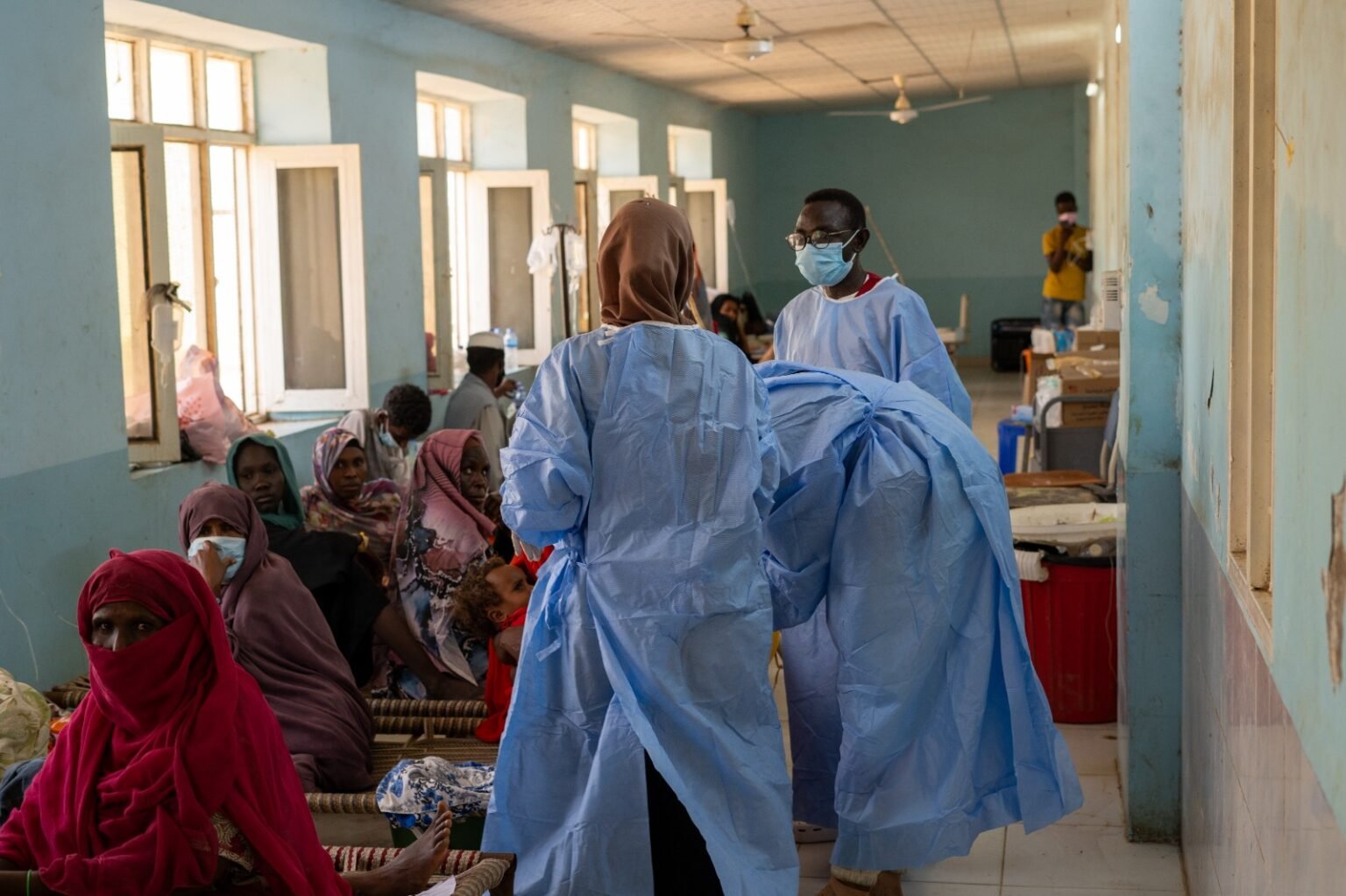SKY YORK NEWS — Investigative Report
As Sudan grapples with one of the worst humanitarian crises in its modern history, a deadly outbreak officially labeled “cholera” by Sudan’s health ministry is raising alarming questions.
Multiple medical field reports and eyewitness testimonies suggest that what is spreading in several states may not be cholera at all — but rather the deliberate use or accidental leakage of banned chemical agents by Sudan’s military in conflict zones.
Doctors operating in Sennar, Al-Jazira, Khartoum, and White Nile states have documented unusual symptoms not typical of cholera, including severe headaches, intense muscle cramps, breathing difficulties, rashes, and internal pain. Such symptoms are often linked to toxic exposure or chemical poisoning, not bacterial infection.
Government Concealment Amid a Health Collapse
Over 70% of Sudan’s hospitals are out of service, while widespread power and water cuts have crippled the health system, leaving the disease to spread unchecked and undocumented.
Several volunteer doctors, speaking anonymously to SKY YORK NEWS, said the speed and pattern of patient deterioration do not match cholera. Yet, they added, threats from Sudanese army units and allied extremist militias like “Faylaq al-Baraa” have created an atmosphere of fear that prevents open reporting or investigation.
Meanwhile, the health ministry under Gen. Abdel Fattah al-Burhan continues to promote the cholera narrative to explain rising deaths to the international community, despite internal skepticism from medical staff who say the real numbers are far higher and the symptoms align with toxic chemical exposure.
A Potential War Crime Under International Law
Under the Geneva Conventions and the Chemical Weapons Convention, the use of chemical weapons against civilians constitutes both a war crime and a crime against humanity.
If confirmed, the deployment of toxic gas by Sudan’s military or allied armed groups to punish civilians, suppress dissent, or retaliate against perceived Rapid Support Forces sympathizers would represent a grave escalation of the war and a violation of international law.
Despite U.S. sanctions on Sudan’s military government, no international medical or environmental mission has been dispatched to investigate the outbreak — a silence that rights advocates call alarming and complicit.
Calls for an Independent International Investigation
Sudanese doctors and human rights groups are now urging the formation of an independent international investigation led by the Organisation for the Prohibition of Chemical Weapons (OPCW), the World Health Organization, and credible human rights bodies to:
-
Verify if chemical weapons have been used against civilians
-
Document and analyze all cases in conflict and remote areas
They warn that ignoring or concealing the truth will only embolden perpetrators, and stress that uncovering the full reality and holding those responsible accountable is essential to saving lives — and Sudan’s future
